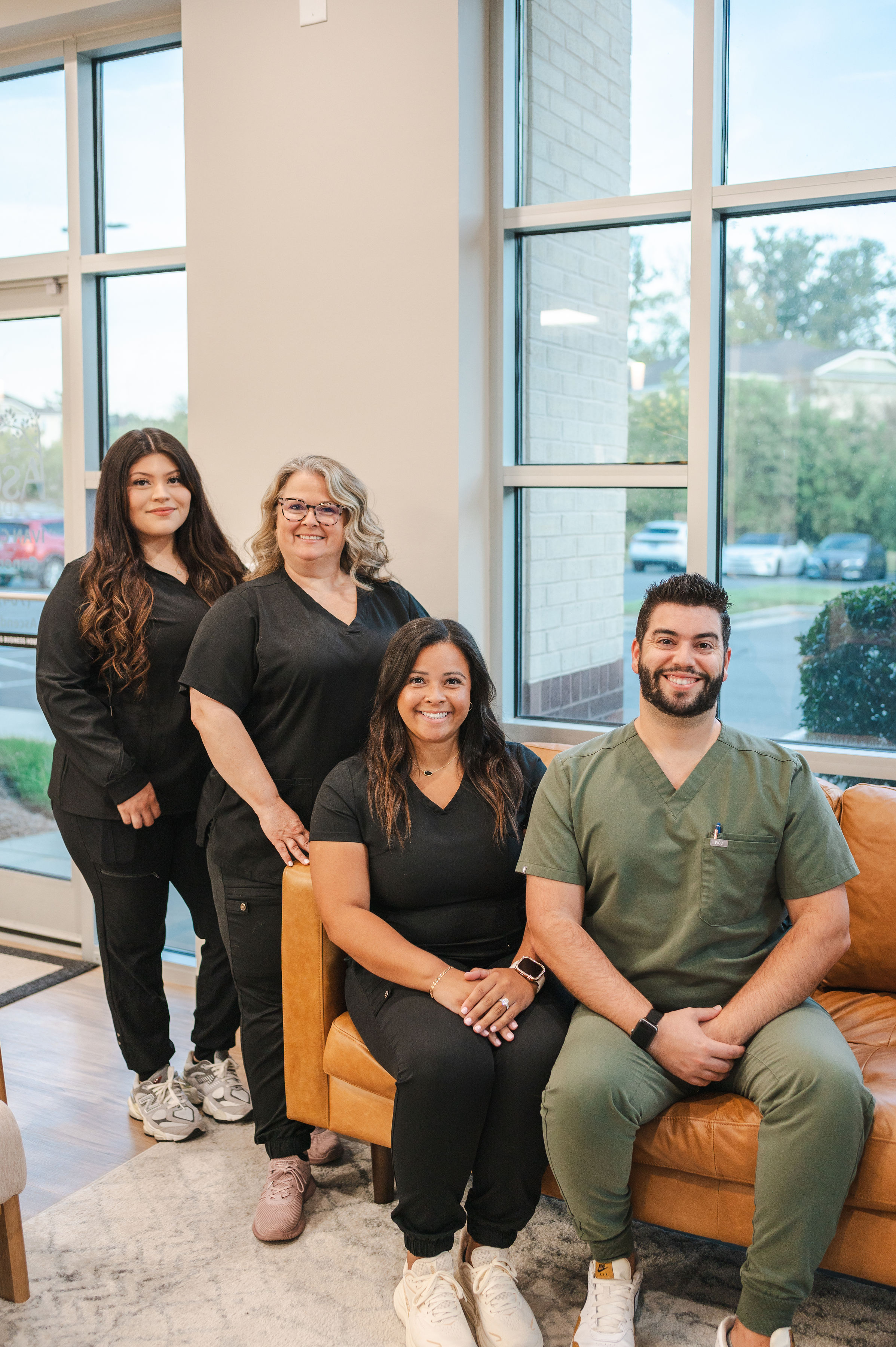Why People Love Ascend Dentistry

What Is Cosmetic Bonding?
Cosmetic bonding is a dental procedure that involves the application of a tooth-colored composite resin to the surface of the tooth to improve its appearance. The resin is sculpted and polished to match the surrounding teeth, creating a natural look. It’s a versatile treatment used to address a variety of dental issues, including:
- Chipped or cracked teeth
- Discolored teeth that don’t respond to whitening treatments
- Gaps between teeth
- Misshapen teeth
- Minor tooth decay or damage
Cosmetic bonding is often used as an alternative to more extensive treatments like veneers or crowns.
Benefits of Cosmetic Bonding
Cosmetic bonding offers several advantages for patients looking to enhance their smile:
- Minimally invasive: Unlike veneers or crowns, bonding requires minimal tooth preparation, meaning little to no enamel is removed.
- Quick and cost-effective: Bonding is a relatively simple procedure that can often be completed in just one visit, making it a faster and more affordable option compared to other cosmetic treatments.
- Natural appearance: The composite resin used in bonding is matched to the color of your natural teeth, creating a seamless, natural-looking result.
Versatility: Cosmetic bonding can be used to fix a wide range of dental imperfections, from chips and cracks to gaps and discoloration.


How Is Cosmetic Bonding Performed?
The cosmetic bonding process is straightforward and typically involves the following steps:
- Preparation: Your dentist will begin by selecting a shade of composite resin that closely matches the color of your natural teeth. In most cases, no anesthesia is needed unless the bonding is being used to fill a cavity.
- Application: The surface of the tooth is lightly etched to create a rough texture, which helps the bonding material adhere better. The composite resin is then applied to the tooth in layers and shaped to achieve the desired appearance.
- Curing: A special ultraviolet light or laser is used to harden the resin in just a few seconds.
- Shaping and polishing: Once the resin is hardened, your dentist will trim and shape the bonding material to ensure it looks natural. The tooth is then polished to match the sheen of the surrounding teeth.
The entire process usually takes about 30 to 60 minutes per tooth, and the results are immediate.
Take Your Smile to a Whole New Level

Flexible Solutions Tailored to You
Continuous Care for Lasting Oral Health

Do You Take My Insurance?

Free Consultations to Explore Your Options
Frequently Asked Questions
What dental issues can cosmetic bonding fix?
Cosmetic bonding is a versatile procedure that can address a variety of aesthetic and functional dental issues, including:
- Chipped or cracked teeth: Bonding can repair minor chips or cracks in the enamel, restoring the tooth’s appearance and function.
- Gaps between teeth: For patients with small gaps between their teeth, bonding can be used to fill in the spaces and create a more uniform smile.
- Discolored teeth: Bonding is an excellent option for covering stains or discoloration that don’t respond to whitening treatments.
- Misshapen teeth: If you have teeth that are uneven or oddly shaped, bonding can be used to reshape them for a more attractive smile.
- Tooth decay: In some cases, bonding can be used to fill small cavities, especially on front teeth where aesthetics are a concern.
By addressing these issues, cosmetic bonding can significantly improve the appearance of your smile and boost your confidence.
How long does cosmetic bonding last?
With proper care, cosmetic bonding can last anywhere from 5 to 10 years. The longevity of the bonding depends on several factors, including:
- Oral hygiene: Brushing, flossing, and regular dental checkups are essential for maintaining the health of your teeth and the durability of the bonding material.
- Diet: Avoid biting down on hard objects such as ice or hard candy, which can chip or break the bonding.
- Habits: Teeth grinding (bruxism) can wear down the bonding material over time. If you grind your teeth, your dentist may recommend wearing a mouthguard at night.
Regular dental visits allow your dentist to monitor the condition of the bonded teeth and perform any necessary repairs or touch-ups.
Does cosmetic bonding stain?
Unlike porcelain veneers, composite resin used in cosmetic bonding is more porous and therefore more susceptible to staining. Over time, exposure to foods and drinks like coffee, tea, red wine, and dark-colored sauces can cause the bonding to discolor. To minimize staining:
- Brush and floss regularly: Good oral hygiene practices will help remove food particles and bacteria that can cause stains.
- Avoid staining foods and drinks: Limiting your consumption of coffee, tea, and wine can help keep the bonding looking bright and clean.
- Schedule regular cleanings: Professional cleanings help maintain the appearance of your bonded teeth.
If staining occurs, your dentist can polish the bonded teeth to remove surface stains, or in some cases, replace the bonding material if necessary.
Is cosmetic bonding painful?
Cosmetic bonding is a minimally invasive procedure that typically doesn’t require anesthesia unless the bonding is being used to fill a cavity. Most patients experience little to no discomfort during the procedure. After the bonding is complete, you may feel some mild sensitivity to hot or cold temperatures for a few days, but this usually subsides quickly.
If you experience any discomfort during or after the procedure, your dentist will work with you to ensure your comfort throughout the treatment process.
How much does cosmetic bonding cost?
The cost of cosmetic bonding can vary depending on the number of teeth being treated and the extent of the work required. On average:
- Bonding for a single tooth can range from $300 to $600.
- More extensive bonding, such as treating multiple teeth, may cost more.
Cosmetic bonding is generally less expensive than other cosmetic treatments like veneers or crowns, making it an affordable option for improving your smile. Many dental insurance plans cover bonding when it’s used for restorative purposes, such as filling a cavity, but may not cover it for purely cosmetic reasons. Be sure to check with your insurance provider to understand your coverage.
How do I care for bonded teeth?
Caring for bonded teeth is similar to caring for your natural teeth. Here are some tips to help you maintain the appearance and longevity of your cosmetic bonding:
- Brush and floss regularly: Maintaining good oral hygiene is essential for preventing plaque buildup and keeping the bonding material clean.
- Avoid biting hard objects: Refrain from chewing on hard items like ice, pens, or fingernails, which can chip the bonding material.
- Limit staining foods and drinks: Minimize your intake of coffee, tea, red wine, and other staining substances.
- Schedule regular dental checkups: Visiting your dentist regularly allows them to check the condition of the bonded teeth and perform touch-ups if necessary.
By following these guidelines, you can keep your bonded teeth looking great for many years.







